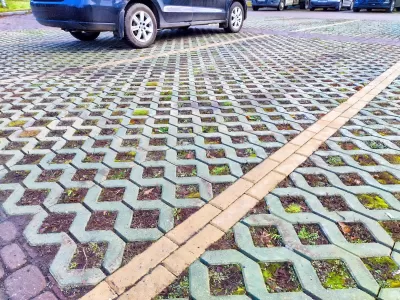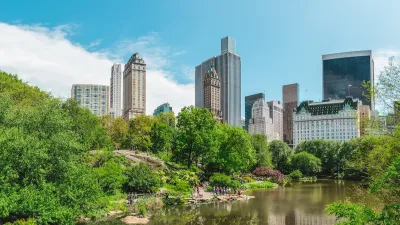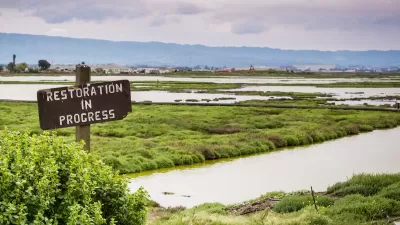Cities are increasingly adopting nature-based solutions like floodable parks and green roofs to combat flooding, offering cost-effective, multifunctional benefits while requiring careful planning and integration with traditional infrastructure.

In the face of increasingly severe and frequent flooding due to climate change, cities are turning to nature-based solutions like floodable parks, green roofs, and wetlands to absorb and slow water runoff. Traditional gray infrastructure, such as concrete channels and underground tanks, often exacerbates flood impacts by quickly funneling water without additional storage options. As reported by Natalie Donback, examples from Europe and Southeast Asia demonstrate the advantages of nature-based solutions, such as Valencia (Spain)'s need for updated infrastructure to manage urbanization and Bangkok (Thailand)'s Chulalongkorn University Centenary Park, which combines flood management with recreational and ecological benefits.
Nature-based solutions offer broader advantages beyond flood protection, including biodiversity enhancement, recreational spaces, and climate adaptation. Cities like Copenhagen (Denmark), which implemented green roads and floodable parks, have shown how these systems can replace outdated methods and provide co-benefits like improved mental well-being and water quality. Despite these advantages, challenges like limited urban space, the complexity of cost-benefit calculations, and unintended consequences like increased mosquito habitats or rising housing costs require careful planning and regulation.
Although no single solution can address all flooding challenges, integrating nature-based approaches with traditional infrastructure offers a balanced strategy. Studies show these solutions are on average 42 percent cheaper and create 36 percent more value than conventional gray systems, but their implementation demands long-term thinking and collaboration among governments, planners, and communities. By rethinking urban spaces and prioritizing sustainable solutions, cities can better prepare for extreme climate events while creating healthier, more resilient environments.
FULL STORY: How Cities Are Using Nature-Based Solutions to Tackle Floods

Alabama: Trump Terminates Settlements for Black Communities Harmed By Raw Sewage
Trump deemed the landmark civil rights agreement “illegal DEI and environmental justice policy.”

Planetizen Federal Action Tracker
A weekly monitor of how Trump’s orders and actions are impacting planners and planning in America.

How Atlanta Built 7,000 Housing Units in 3 Years
The city’s comprehensive, neighborhood-focused housing strategy focuses on identifying properties and land that can be repurposed for housing and encouraging development in underserved neighborhoods.

In Both Crashes and Crime, Public Transportation is Far Safer than Driving
Contrary to popular assumptions, public transportation has far lower crash and crime rates than automobile travel. For safer communities, improve and encourage transit travel.

Report: Zoning Reforms Should Complement Nashville’s Ambitious Transit Plan
Without reform, restrictive zoning codes will limit the impact of the city’s planned transit expansion and could exclude some of the residents who depend on transit the most.

Judge Orders Release of Frozen IRA, IIJA Funding
The decision is a victory for environmental groups who charged that freezing funds for critical infrastructure and disaster response programs caused “real and irreparable harm” to communities.
Urban Design for Planners 1: Software Tools
This six-course series explores essential urban design concepts using open source software and equips planners with the tools they need to participate fully in the urban design process.
Planning for Universal Design
Learn the tools for implementing Universal Design in planning regulations.
Caltrans
Smith Gee Studio
Institute for Housing and Urban Development Studies (IHS)
City of Grandview
Harvard GSD Executive Education
Toledo-Lucas County Plan Commissions
Salt Lake City
NYU Wagner Graduate School of Public Service





























